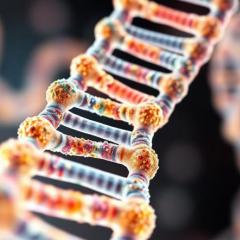University of Queensland research to prevent, treat and diagnose a range of cancers has been boosted by the injection of $1.78 million in Cancer Council Queensland funding.
The funds will contribute to nine research projects designed to develop better ways to prevent, treat and diagnose acute myeloid leukaemias and cancers of the breast, ovaries, testicles, prostate, skin and brain.
UQ Deputy Vice-Chancellor (Research) and Vice President (Research) Robyn Ward congratulated the successful research teams and thanked Cancer Council Queensland for its generous support.
“As a clinical oncologist and bowel cancer researcher myself, I know how important these grants are to helping our scientists develop their ideas into outcomes that will improve the future health of Queenslanders,” Professor Ward said.
“Cancer Council Queensland and its supporters have a proud history of investing in the state’s leading cancer researchers, and we are delighted to count our researchers among them.”
Cancer Council Queensland spokesperson Katie Clift said the organisation was proud to be funding ground-breaking research projects at The University of Queensland.
“It’s crucial that we fund more research to discover better treatments for Queenslanders diagnosed with cancer,” Ms Clift said.
“We are confident in the work of The University of Queensland and their contribution to clinical research, making a real difference to treatments and outcomes of Queenslanders diagnosed with cancer.
“Their research is world-leading and very promising. We look forward to seeing the results of these projects in the future.”
The UQ research projects to receive Cancer Council Queensland funding for 2015-2016 are:
Dr Roberta Mazzieri from UQ’s Diamantina Institute – $200,000 to improve our understanding of tumour cells and their surrounding micro-environment, with the aim of developing more effective therapies to support the body’s immune system to help fight tumours in primary and metastatic breast cancer.
Professor Brandon Wainwright from UQ’s Institute for Molecular Bioscience – $200,000 to refine a novel genetic approach to treating medulloblastoma, the most common form of brain cancer.
Associate Professor Rick Sturm from School of Medicine – $200,000 to understand the complex relationship between sun exposure, skin colour and skin cancer formation.
Professor Thomas Gonda from UQ’s School of Pharmacy – $200,000 to find chemicals that block a cellular interaction between two key proteins active in acute myeloid leukaemias and could be developed as potential anti-cancer drugs.
Associate Professor John Hooper from Mater Research Institute-UQ – $200,000 to determine if blocking a target protein called CDCP1 could be used in combination with other drugs to treat an aggressive form of cancer known as clear cell ovarian cancer.
Professor Peter Koopman from UQ’s Institute for Molecular Bioscience has been awarded $200,000 to investigate if the expression of a protein called Cripto is useful for diagnosing and possibly treating testicular cancer.
Dr Allison Pettit from Mater Research Institute-UQ – $200,000 to explore how prostate cancer cells and immune cells called macrophages work together to cause prostate cancer bone metastasis, and to identify future drug targets that could disrupt this pro-cancer co-operation.
Associate Professor Lachlan Coin from UQ’s Institute for Molecular Bioscience – $185,000 to develop non-invasive blood tests that could help doctors monitor how a patient’s breast cancer responds to treatment after surgery, and if this response could put them at risk of their cancer recurring or spreading.
Professor Alpha Yap from UQ’s Institute for Molecular Bioscience – $200,000 to understand the molecules responsible for pushing out breast cancer cells from healthy tissue (a process that promotes cancer cell growth and invasion into the body) and to provide the knowledge for developing new diagnostics and therapeutics.
For cancer information or support visit cancerqld.org.au or call Cancer Council’s 13 11 20.
Media: Caroline Bird, communications@uq.edu.au, 07 3365 1130



